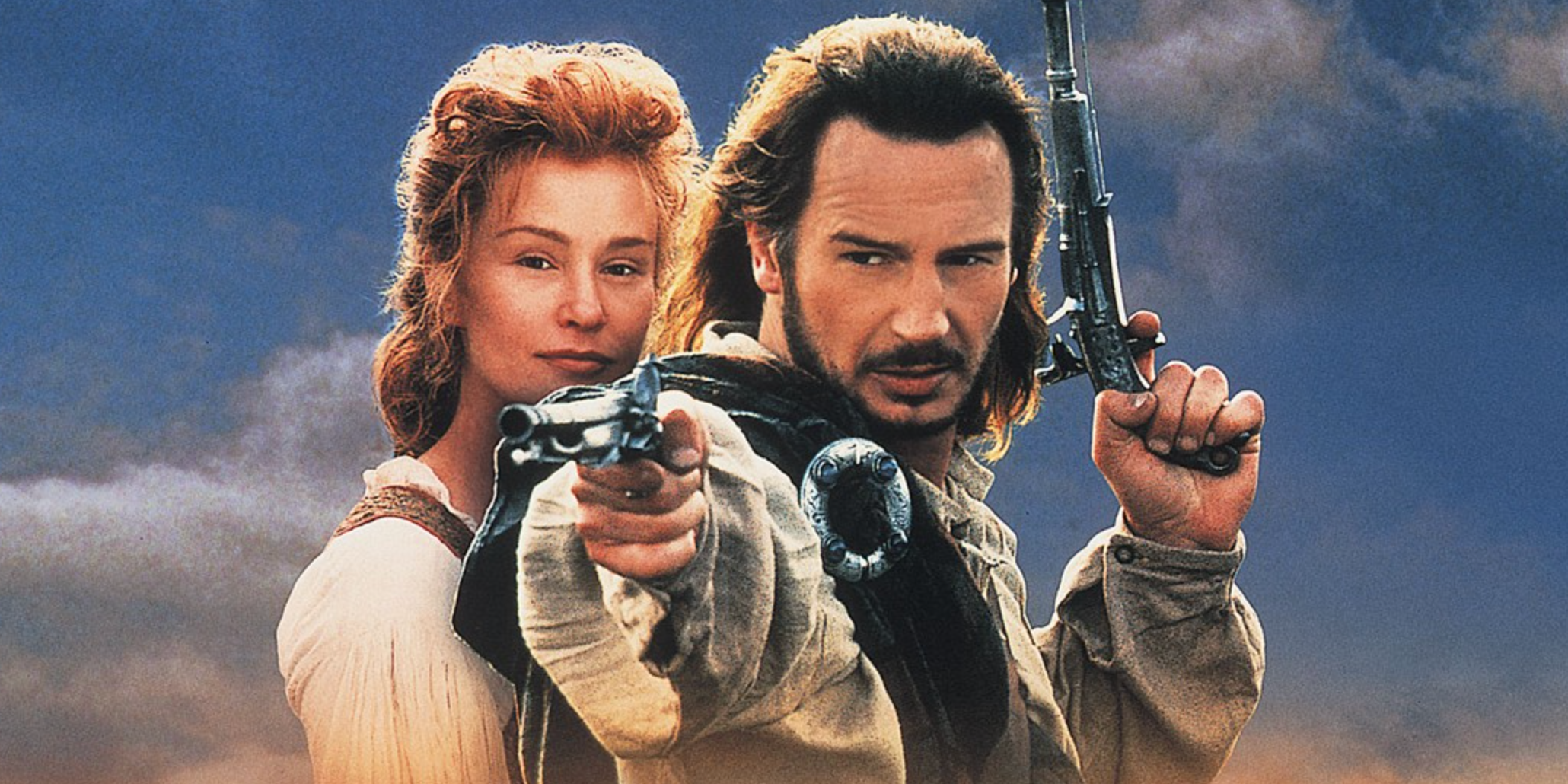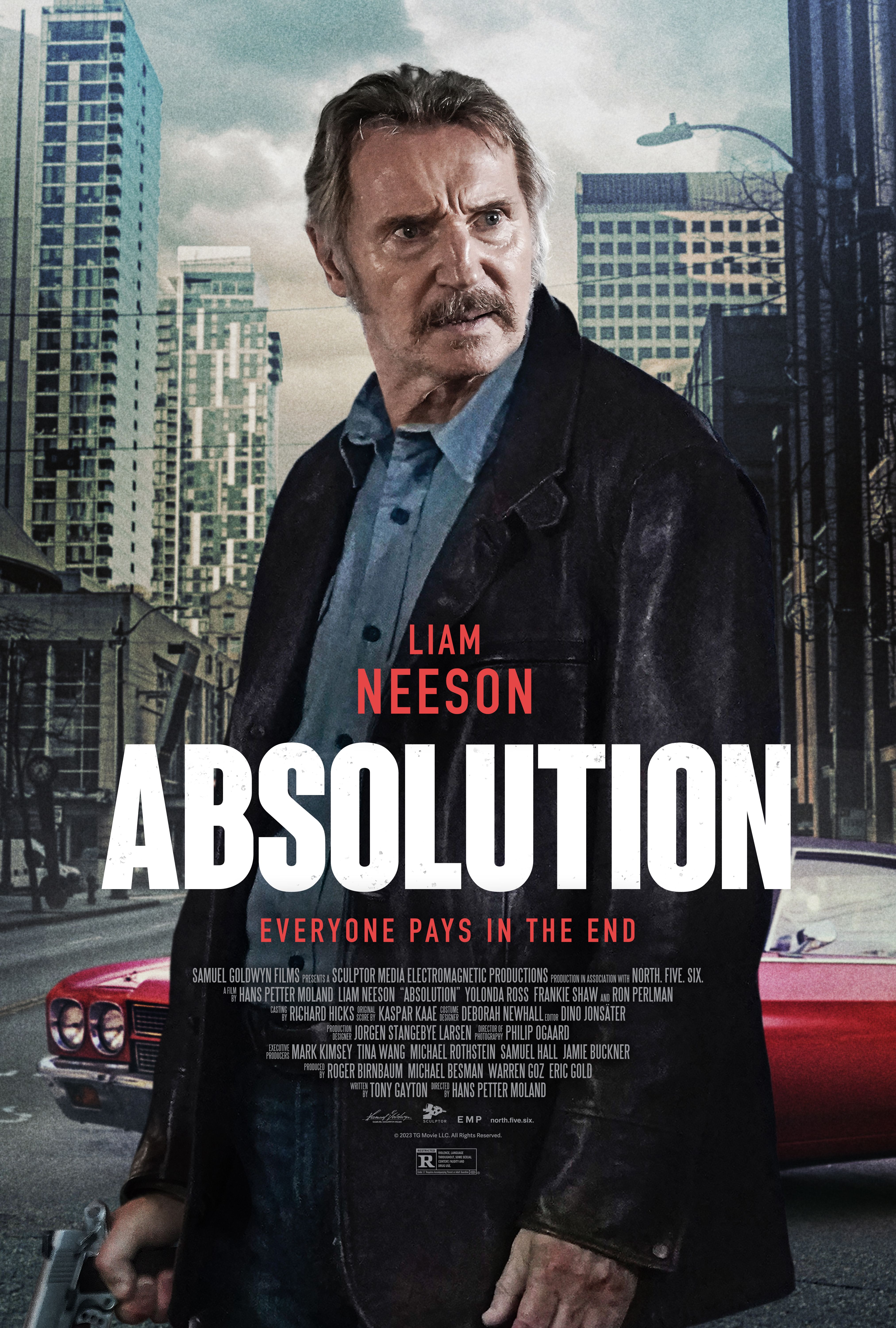Liam Neeson’s 2024 action-thriller Absolution offers something both familiar and slightly surprising. Its trailer sells spirited gunfights that promise another high-body-count shoot-‘em-up—a trademark of Neeson’s movies since starring in Taken. But Absolution is an intimate story about regret, family, and the fear of dying alone. Neeson reunites with director Hans Petter Moland in their first collaboration since 2019’s Cold Pursuit. He plays a nameless, terminally ill, aging gangster known only as Thug, who tries to make right his relationship with his estranged family.
After many years, he reconnects with his estranged daughter, Daisy (Frankie Shaw)—who wants nothing to do with him—and her children, while haunted by a dead son he couldn’t save. In the chaos, he meets an equally lonely but bubbly woman (Yolanda Ross, in one of her understated performances) who’s willing to take a chance on him. Absolution is about deep-rooted traumas catching up with a man who’s running out of time. Don’t expect an action spectacle; this is more character drama than a shootout showcase. Neeson’s commanding presence gives it just enough gravity to make the emotional stakes real, even if some plot points are well-trodden.
Liam Neeson Swaps Firefights for a Shot at Redemption in ‘Absolution’
Across his action movies, whether he’s spraying bullets in The Commuter or toughing it out in The Grey, Neeson is usually the guy mowing down whoever’s in his way. Absolution offers him a rare opportunity to sit in the quiet wreckage of a life misspent. His Thug, who was once a fearsome enforcer for criminal organizations, is now suffering from chronic traumatic encephalopathy (CTE), with his health slipping fast. His memory is failing him, and he looks frail, even though he occasionally flashes the menace of his former self. But the film’s focus is on his introspection, his attempts at righting the wrongs in his life, and making peace with parts he cannot control, such as mending his relationship with his late father. Sure, there are shootouts, but they’re few and far between—more like pauses in a story that’s really about what’s falling apart on the inside, not what’s coming at him from the outside.
Thug’s restrained relationship with his daughter Daisy is where the real weight lies, packed with tension, regret, and the kind of pride that won’t let anyone say what they really mean. Their dynamic is reminiscent of Neeson’s previous father-daughter pairing in Taken, but without the fantasy of easy reconciliation. In Absolution, Neeson can’t just kill his way back into his daughter’s life after years of abandonment she sees as betrayal. Thug is aware of the low life he’s lived, and though it is ingrained—he slips into old habits even around his grandson—he’s desperate to break the cycle. “Don’t be like me,” he tells his grandson. His search for redemption sees him overcompensating by taking up cases from strangers who require help. “Sometimes, to do good, I have to do some bad things.” He says it to the boy, but really, he is trying to convince himself.
‘Absolution’ Reminds Us That Neeson’s Best Weapon Is His Humanity
One of the upsides of Absolution is Neeson’s honest portrayal of mortality. Having spent a good chunk of his career in actioners, where he depicted tough men who always seemed one step ahead, one punch stronger, and one shot faster, it’s refreshing to see him play a man on the losing end. He is losing his family. He is losing his health. He is losing his time. Admittedly, it is not the first time Neeson has played such a deep character. In 2019, he starred in the quietly beautiful Ordinary Love, opposite Lesley Manville, whose character—his wife—is diagnosed with terminal cancer. Neeson plays the supportive husband who watches as the love of his life is eaten by the monster. In Absolution, however, he is the victim, but unlike his support in Ordinary Love, he is a lonely soul who’s wrecked nearly every relationship that might have helped him now.

Related
Liam Neeson Battled Tim Roth Out in This Oscar-Nominated Revenge Epic — and It’s Time You Caught Up
He will find and he will protect Jessica Lange.
Absolution seems to mirror Neeson’s own career, cycling back to his quieter, earlier work, like biopics Kinsey and Michael Collins, where the internal war matters more than external victory. Thug is not flashy; he doesn’t expect forgiveness either. With a small, poignant ambition, he fights—almost clumsily—for the chance to do one or two things right before he’s gone, and it’s rendered all the more affecting by Neeson’s raw and unflashy performance. Adding to the intimacy is Thug’s romance with Yolanda Ross’s character, which has a realistic human touch to how their two lonely souls cling to the hope that something good can still come from their bruised lives.
Moland’s direction lets scenes stretch out to let characters breathe—or suffocate—in their choices. No, he doesn’t reinvent the wheel, and the film occasionally slips into familiar tropes. But Absolution doesn’t need to be revolutionary to be effective. It’s a stripped-down, bruised little film anchored by a towering, broken performance. And that’s more than enough.




















